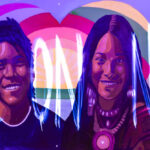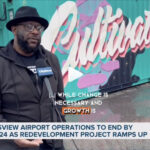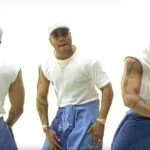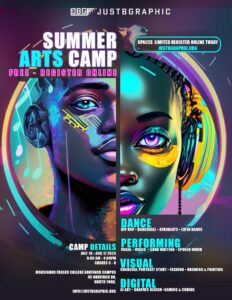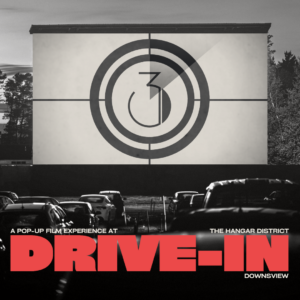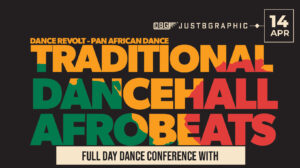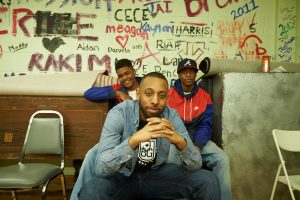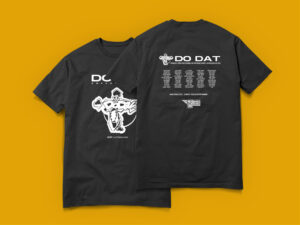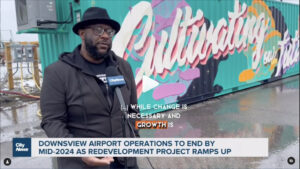How Race informs our understanding of health.
“Why us, and why now?” (Hot 97.1 FM, 2021) a critical question asked by Hip Hop radio host Ebro Darden of the Ebro In The Morning Radio show- New York. This question is in response to the government’s efforts to vaccinate black communities who are dying from COVID-19 at a disproportionate rate.
Heavy with the historical trauma experienced by members of BIPOC communities throughout the America’s, Ebro goes on to argue that the reason for the push is because the BIPOC community are the essential workers. While his argument is true, it is also evidence of the embodiment of racialization and health. This response seeks to conceptualize health through the lens through Hip Hop culture using frameworks of intersectionality and structural competency.
Social determinants of health have been a common conversation amongst the BIPOC community long before it was theorized. Stories of surviving police brutality, systemic racist laws, constant social prosecution of character while performing roles of pleasant, ambitious, hard workers— pulling ourselves up by the bootstraps. Music and other forms of black artistic expressions have aided as therapy for hundreds of years, giving birth to brilliant thinkers such as Kimberly Crenshaw who theorized the plight of the BIPOC community now widely known as intersectionality.
Intersectionality is a tool that allows us to see the complexity and connectedness of the various parts of our identities helping to reason with reality. 2020 was a year that put the concept of intersectionality at the forefront of many conversations, especially surrounding health, pointedly the social determinants of health.
The COVID-19 pandemic in many ways revealed the holes in our society. Nancy Krieger spoke on structural racism by utilizing intersectionality. She argued that the effects of COVID on the bodies of racialized people is realized through years of racist ideas and systems that supported them. Nancy argues that even if one were to remove race and ethnicity, the human body still bears the scars caused by racialized healthcare. COVID-19 proved that theory correct. (UC Berkley 03:15–05:21).
Hip Hop has long been an advocate of such social determinants on health. The common perception of rappers and rap culture is that it glorifies the use of drugs, the abuse of women and gun violence. This is understandable if the depth in which it is interpreted lacks tools of intersectionality to identify structural inequalities, racialization, and health inequities addressed in the lyrics.
Examples can be found in songs such as ‘Hands Up’ by Vince Staples, ‘Black Rage’ by Lauryn Hill, ‘Sound of Da Police’ by KRS- or ‘Be Free’ by J. Cole.. All of these songs are living anthropogenic artifacts of the black lived experience. They articulate the experience of living in a racist society and the impacts it has on a holistic understanding of health.
Ebro’s question when discussing the American Government’s push to vaccinate the black community is weighted with the mass of intersecting social determinants and their collective impact on health in the BIPOC community. He argues “COVID-19 is not the only factor killing the BIPOC community, Unemployment, police brutality, joblessness, homelessness, mental health, food deserts, drugs. All of those things kill us disproportionately too.” (Hot 97.1 FM, 2021).
The push to vaccine is premised on the need to get back to business, which in this context is heard as exploitation and further abuse. Rapper Jay-Z wrote ‘Light nigga, dark nigga, faux nigga, real nigga. Rich nigga, poor nigga, house nigga, field nigga. Still nigga, still nigga’ (Carter, 2017). A powerful chorus that amplifies the reality that beyond social constructs, beyond wealth and social status the BIPOC are still subjected to the racialization of our society.
References
“Community, Work, And School”. Centers For Disease Control And Prevention, 2021, https://www.cdc.gov/coronavirus/2019-ncov/community/health-equity/race-ethnicity.html.
“Why Is COVID-19 More Severely Affecting People Of Color?”. Mayo Clinic, 2021, https://www.mayoclinic.org/diseases-conditions/coronavirus/expert-answers/coronavirus-infection-by-race/faq-20488802. Accessed 18 July 2021.
“Why Is COVID-19 More Severely Affecting People Of Color?”. Mayo Clinic, 2021, https://www.mayoclinic.org/diseases-conditions/coronavirus/expert-answers/coronavirus-infection-by-race/faq-20488802. Accessed 18 July 2021.
Canada, Public. “What Is Health? – Canada.Ca”. Canada.Ca, 2021, https://www.canada.ca/en/public-health/services/health-promotion/population-health/population-health-approach/what-is-health.html. Accessed 18 July 2021.
Carter, Shawn. “The Story Of O.J””. Roc Nation, Hollywood, California, 2017. Accessed 18 July 2021.
Hot 97.1 FM. “Ebro In The Morning – A Serious Convo About The Covid-19 Vaccine”. Ebro In The Morning, 2021. Accessed 18 July 2021.
UC Berkley Events. Nancy Krieger On: Structural Racism, Social Justice, And COVID-19. 2021, http://www.youtube.com/watch?v=ZdItzcTiSCo&. Accessed 18 July 2021.



